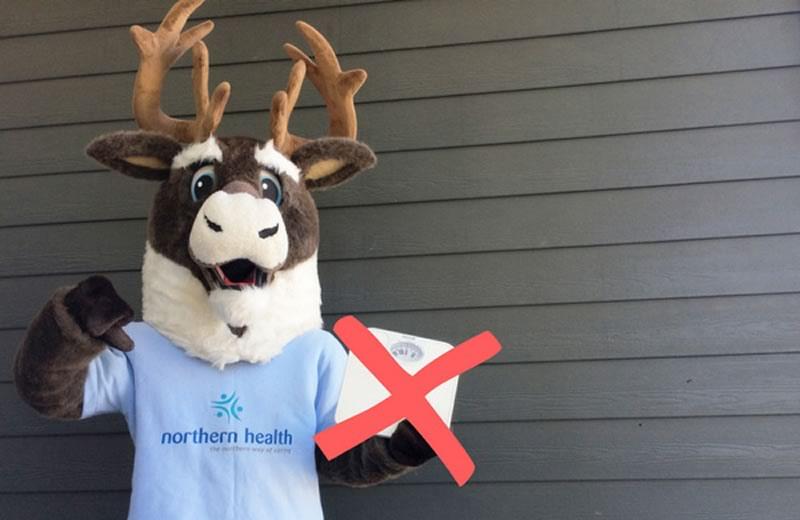Do you have something that you are super sensitive and/or passionate about? The thing that gets you so riled up that you have to speak up or do something? For me, that something is weight. More specifically, how weight, and its connection to eating and health, are viewed in our world.
In today’s world, it seems normal to make comments and pass judgements about body size.
Just in the past month I’ve witnessed these scenarios:
- One work colleague to another: “You look awesome! Have you lost weight?” Why is this problematic? It’s because it assumes that all weight loss is good and achieved in safe ways. It also implies that the person didn’t look good before losing the weight.
- During lunch one day, a staff member attributed certain eating habits to someone based on their size: “You must eat healthy, you are so little!” to which the individual commented that they enjoyed a varied diet including full fat dairy, especially cheese, and had a sweet tooth. This comment fails to recognize that there are many things that influence body size.
These are just two common examples of “diet culture.” I suspect you have your own examples. Diet culture is a way of thinking in which food and body size are judged and body size is valued over health.
Diet culture causes harm in some of the following ways:
- It presents eating as moralistic, meaning food is “good” or “bad.” If you choose to eat “bad” foods then you are bad and should be ashamed. This view doesn’t consider that we all have different living circumstances and access to resources. For example, socio-economic factors, such as income and education, have a large impact on a person’s ability to access food. Even I, who has a lot of economic privilege, pause before purchasing a cauliflower head for $7.99. In truth, no food is good or bad. Rather, healthy eating is eating a variety of “good-tasting” and “good-for-you” foods in amounts that are satisfying and support health and wellness (in fact, this is how dietitians define “diet,” in a supportive, not restrictive way).
- It overvalues food and eating by promoting the idea that nearly every health problem can be fixed by changing what, how, and/or how much you eat. While modifying diet may sometimes positively impact your health, it isn’t a cure all. There are many factors that impact health, including genetics, access to resources like money and health care, culture, experiences of trauma (especially in childhood), and social and physical built environments. The belief that diet = health places high value on one component of health (physical) without considering the collective impact of other components (mental, social, etc.).
- It suggests that being “fat is bad.” Specifically, fat people are described using many negative labels. Jeon and colleagues recently assessed comments on YouTube and found there were “frequent disinhibited aggressive messages” against overweight individuals online. This is weight bias and stigma, a form of discrimination, which has been shown to negatively impact health (check out this article if you want to know more). The truth is that when you look at the stats, it looks like those in the overweight and lower levels of obesity categories have lower health risks. So, why is it okay to discriminate against larger bodies (i.e. fattism)? Is it really about health?
- It promotes the idea that weight loss, by any means, is to be celebrated. I’ve seen many disordered eating behaviours that are reinforced in bodies of all sizes because they promote weight loss. I’ve had past clients tell me they’ve been complimented for their weight loss . . . while on chemotherapy. I was on the receiving end of similar comments about weight loss a few years ago from a nurse colleague. My mother had just died unexpectedly at age 54. I was devastated and, for a few months, I wasn’t able to focus on taking care of myself well – I wasn’t nurturing myself with regular meals and snacks. My body was physically showing my grief. This was not a sustainable or a healthy approach to eating. However, as I came to terms with this personal tragedy, I returned to my usual way of eating and moving. Perhaps, rather than focusing on weight, we should look to creating supportive environments that celebrate bodies of all shapes and sizes. All bodies are good bodies!
Diet culture causes harm. Diets fail to deliver long term weight loss. Instead, they typically increase your likelihood of gaining weight and negatively affecting your relationship with food and your body.
May 6 is International No Diet Day
May 6 is International No Diet Day. On this day, consider giving up diets and contributing to diet culture. Since habits are a better predictor of health than size, consider ways to take care of your body, mind, and soul. Here are a few ideas to ponder:
- Smash your scale and pledge to not weight yourself. Check out this video for inspiration.
- Feed yourself faithfully – plan and enjoy regular meals and planned sit-down snacks of foods that you enjoy.
- Practice intuitive eating. Take time to listen to and respond to your body’s cues for hunger, fullness, and satiety. Remember, it’s okay to choose to eat beyond fullness. Chances are, when you give yourself permission to do so, you will eventually learn to trust yourself to eat the right amount for you. Intuitive eating is non-judgemental.
- Explore new foods and cooking methods. Discovering new foods and new ways of cooking can help you to connect with the food that you eat.
- Honour and share your food traditions with family and friends.
- Recognize and stop engaging in diet (e.g. “Today is my cheat day.”) and fat (e.g. “Do I look fat in this?”) talk. Check out this video for definitions and strategies to deal with these.
From more than 20 years working as a dietitian, I know that you can’t tell how someone eats, moves, or takes care of themselves based on their size or shape. Doing so can cause physical and emotional harm. This “no-diet day”, ask yourself, “what can I do to stop diet culture”? Take a moment to think about one, tangible thing you will do. Please share!














Comments